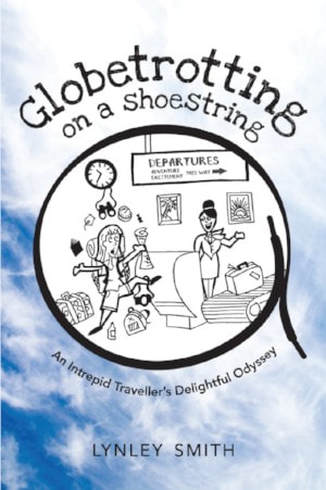
by Lynley Smith
This is a small book of only 120 pages, written in the format of short whimsical anecdotes drawn from the author’s experiences while travelling the world.
Lynley was an ESOL teacher and journalist who, late in life, decided to research the life of a distant relative, Jane Haining, a Scottish woman who was named a British Hero of the Holocaust. She was sent to Auschwitz for trying to protect the Jewish students at a school in Hungary where she was matron, and there she died.
The author’s travels on this journey took her to Scotland, Poland, Hungary, while later adventures saw her in Israel, China, USA, Australia, Africa and Columbia.
She always tried to travel using the cheapest fare available and chose to stay at the cheapest hostel possible, hence the title of the book. It is not a ‘how to’ book, but by reading some of the anecdotes the reader can perhaps avoid some of the difficulties she encountered.
It is an easily read, friendly book. This impression is enhanced by the non-standard type font chosen, which gives the impression that is a book of personal adventures, not a formal travel guide. The illustrations take the form of caricatures, and also add to the intimate feel of the book. Some may not appreciate these things, but I think they enhanced the atmosphere of the stories.
For me, the highlights were her visit to Auschwitz, which wrenched her soul, and her visit to Kenya where she was able to spend time with a woman who she had sponsored as a child, and who had now grown into adulthood with her own husband and family. The family lived in absolute poverty, but were still gracious enough to extend enormous hospitality to her.
Her descriptions of meals in China were very entertaining, especially the ones where she ate insects.
Lynley had a daughter living in Columbia and her description of the underlying drug culture she found there is very graphic.
There is a constant thread throughout the book of being guided and protected by her Christian Faith, many times she was faced with difficulties, but she was always confident that she would be aided to overcome them, and she invariably was.
There are two issues that need addressing if the book is ever reprinted, her use of the term ‘Maori Wars’ is no longer acceptable; better terminology would be ‘New Zealand Wars’, or ‘Land Wars’. The second is that the plural of Maori is Maori, not Maoris. It was strange that an experienced journalist and teacher would use these terms, and for me they jarred.
Overall it is a good, if somewhat light read which I found quite entertaining.
Author:Lynley Smith
Publisher: Wild Side Publishing
ISBN: 9780473429775
RRP: $24.99
Available: bookshops

 RSS Feed
RSS Feed
